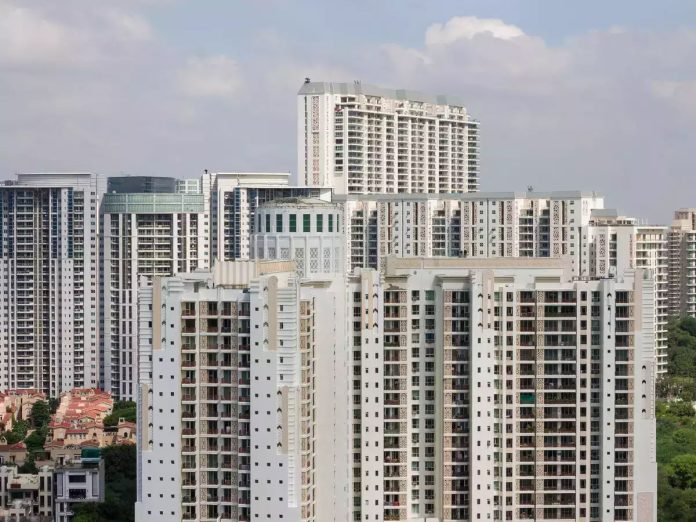There is a line in The Big Short , a 2015 movie about financiers who profited from the U.S. subprime mortgage crash, that makes you think about Everton .
Not because of the labyrinthine, murkily complex methods and unprincipled actions people take to make themselves lots of money. Not exactly that. It’s this.

Advertisement “People hate to think about bad things happening,” says one character. “So they always underestimate their likelihood.” That reflection on a trait otherwise known as normalcy bias might be true for many folk, but not Evertonians.
Nobody who has been on the wild journey of fear and loathing that has sent this fine old club careering to unprecedented lows since Farhad Moshiri’s arrival, initially as co-owner, in 2016 could underestimate a single development anymore. Perhaps they thought a fresh start was going to be possible with the potential new ownership of MSP Capital Sports last May? The New York-based investment company entered into an exclusivity period, only to withdraw from talks. Then there was the drawn-out courting of 777 Partners, a suitor any capable due-diligence process would surely have quickly ruled out.
That, too, ended in failure and damaging consequences that still feel only partially revealed. Finally there was The Friedkin Group, which looked under the bonnet at the state of Everton, baulked and withdrew quicker than its chairman Dan Friedkin can fly a Spitfire. Or take their tumultuous previous season on the field, soundtracked by November’s deduction of 10 points (though that was reduced to six on appeal) for PSR (profit and sustainability rules) breaches under the stewardship of now majority owner Moshiri.
A setback bad enough for any club surely? Their on-the-pitch recovery seemed to merit some respite. Nope. Roll on a second deduction, of two more points, in April that pushed the club to the brink of their first relegation since the early 1950s.
So the luxury, conscious or not, of being able to minimise risk and threat has been largely jolted out of Evertonians. After the 777 fiasco , each new interested party faces an instinctive wall of scepticism and fear unless, like the Friedkins briefly did, they manage to conduct themselves as potentially capable, responsible owners with a decent track record and good, sensible intentions. Advertisement In that light, what about the next saviour to whom Moshiri now appears desperate to hitch his wagon: John Textor, co-owner of Everton’s fellow Premier League side Crystal Palace ? Forgive the fans if they are not tingling with excitement.
Here is an individual who seemingly wishes to buy their club , but only next year, after a stadium refinancing deal is in place, and also only after he has managed to sell his 45 per cent shareholding in Palace. That’s a stake in the south London club which, confusingly, the American is so determined to sell that he..
. recently tried with one final bid to become Palace’s outright owner . All make sense? No, me neither.
Again, you’ll forgive Everton supporters if they arch an eyebrow and wonder if there is game-playing going on here far removed from the proper, serious way to acquire a storied club such as theirs. Ironically, The Friedkin Group seemed to do that, and their hasty retreat only left more worrying questions than it provided answers. What of those answers? Evertonians have long since given up on getting any insight from the club’s Iran-born owner.
Moshiri has abandoned meaningful interviews and communicates only in fits and spurts with the fan advisory board, inevitably failing to offer any true clarity. It leaves supporters vulnerable to their own imaginations, and they rarely imagine the best outcome. Why would they? They worry, in Goodison Park’s emotive final season , whether their main source of hope for the future — the Bramley-Moore Dock stadium which, in fairness, has been largely funded by Moshiri — could become an asset that new owners in general (and this is not an aspersion aimed at Textor) could laden with heavy debt, or even sell.
They fret at the parlous nature of the current first-team squad, stretched to near breaking point already after just one game of the season. Advertisement They fear the last week of the transfer window before Friday’s deadline and, as the manager Sean Dyche conceded this week, having to sell their No 9, England international Dominic Calvert-Lewin , without having time to replace him. And they greet each new twist in the club’s protracted takeover search with all the enthusiasm of a Brit staring at their unused barbecue, dreaming of a brighter day this summer to finally use it, while pulling closed their cardigan to ward off a pre-autumnal chill.
GO DEEPER John Textor interview: His uncertain Palace future, Lyon battles and multi-club vision (Top photo: Olivier Cassignole/AFP via Getty Images).


















